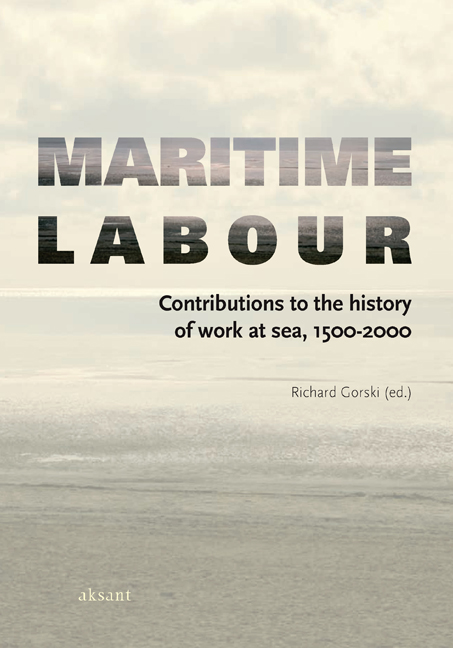Book contents
- Frontmatter
- Contents
- Introduction
- Six Cross-sections of the Dutch Maritime Labour Market: A Preliminary Reconstruction and its Implications (1610-1850)
- On Maritime Labour and Maritime Labour Markets in Germany, 1700-1900
- Swedish Naval Personnel in the Merchant Marine and in Foreign Naval Service in the Eighteenth Century
- Quantifying British Seafarers, 1789-1828
- ‘But for the Loves of the Fishes’: Maritime Labour and Ecological Culture in Nineteenth-century Newfoundland
- The Shipping Federation and the Free Labour Movement: A Comparative Study of Waterfront and Maritime Industrial Relations, c.1889-1891
- Health and Safety Aboard British Merchant Ships: The Case of First Aid Instruction, 1881-1908
- British Merchant Marine Engineer Licensing, 1865-1925
- Transatlantic Fishers: New England and British Trawlermen, 1960-1972
- Masters and chiefs: Enabling globalization, 1975-1995
- About the Contributors
Quantifying British Seafarers, 1789-1828
Published online by Cambridge University Press: 26 January 2021
- Frontmatter
- Contents
- Introduction
- Six Cross-sections of the Dutch Maritime Labour Market: A Preliminary Reconstruction and its Implications (1610-1850)
- On Maritime Labour and Maritime Labour Markets in Germany, 1700-1900
- Swedish Naval Personnel in the Merchant Marine and in Foreign Naval Service in the Eighteenth Century
- Quantifying British Seafarers, 1789-1828
- ‘But for the Loves of the Fishes’: Maritime Labour and Ecological Culture in Nineteenth-century Newfoundland
- The Shipping Federation and the Free Labour Movement: A Comparative Study of Waterfront and Maritime Industrial Relations, c.1889-1891
- Health and Safety Aboard British Merchant Ships: The Case of First Aid Instruction, 1881-1908
- British Merchant Marine Engineer Licensing, 1865-1925
- Transatlantic Fishers: New England and British Trawlermen, 1960-1972
- Masters and chiefs: Enabling globalization, 1975-1995
- About the Contributors
Summary
Introduction: ‘The very real minefield of statistics’
Pessimism has been the hallmark of most appraisals of the primary sources relating to the size and composition of the British seafaring labour force before the late nineteenth century. The tone was set by Ralph Davis, who observed in 1962 that the ‘pathway through the shipping statistics of the seventeenth and eighteenth century is a slippery and often misleading one’. Despite acknowledging that ‘researchers in the period after 1750 are well served with official records [relating] to seamen’, an assessment by Sarah Palmer and David M. Williams of the quality of this material was ‘certainly depressing and might even be characterized as defeatist, but it serves to indicate the very real minefield of statistics’ pertaining to seafaring labour before the mid-nineteenth century. Gordon Jackson was likewise less than optimistic in his efforts to quantify the human resource deployed in merchant vessels registered in Scotland from 1772 to 1808. Drawing upon records generated by the Customs service, he concluded that the ‘grand total of men who might well call themselves sailors was never assessed and cannot now be estimated with any degree of confidence’.
Adopting a more positive approach, this chapter assesses the available source material and offers new estimates of the size of the British seafaring population during the 1789-1828 period. While particular attention is afforded to calculating the number of seamen employed in the merchant shipping industry, which has long proved to be the most difficult branch of the sea service to enumerate, the manpower engaged in the Royal Navy, privateering business, inland navigation and inshore fisheries is also quantified. In treading gingerly through this statistical minefield, the present study provides a measure of the development of Britain's maritime interests over a 40-year era, and an appraisal of the impact of two long, intense wars on the scale and composition of the seafaring workforce. It therefore follows in the footsteps of Ralph Davis and David J. Starkey, and will hopefully serve to dispel some of the pessimism that has tended to shroud this aspect of research into work at sea during the age of sail.
- Type
- Chapter
- Information
- Maritime LabourContributions to the History of Work at Sea, 1500–2000, pp. 83 - 104Publisher: Amsterdam University PressPrint publication year: 2008



